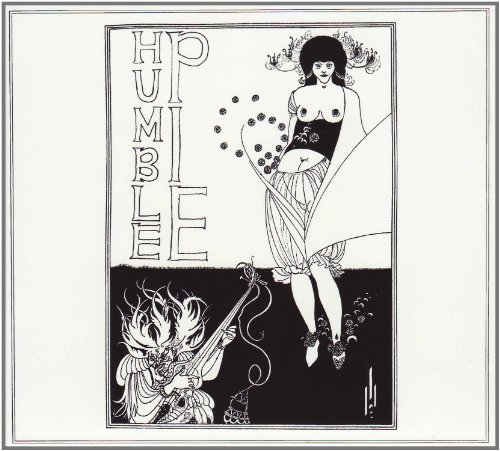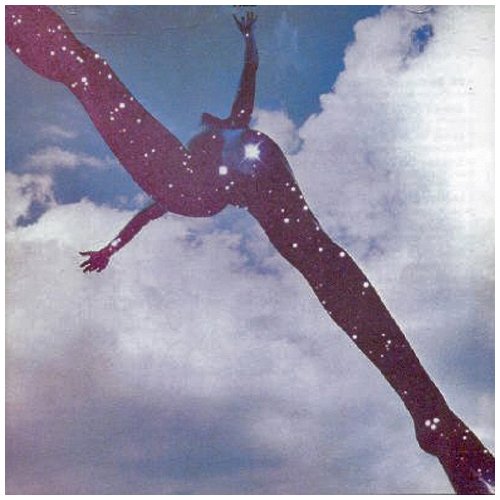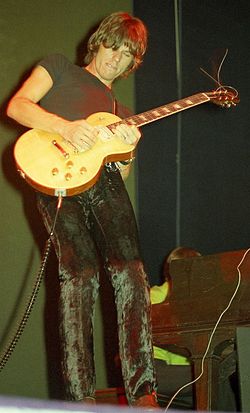Very early Humble Pie, Free in all their grubby, youthful glory, including Paul Rogers and the ever deadly Paul Kossoff on guitar. Plus, a nearly forgotten version of The Jeff Beck Group. Yes my friends, we don't call this music nostalgia, we call it Rock! May it live long and prosper.
Rock, loud, raw and soulful! Is there any other way to hear it. Before the music committed suicide by consistently marginalizing itself as a kind of perpetual freak-show, rock and roll had morphed into just plain "Rock". Between the androgyny and the drugs came some very powerful stuff. Some was political, some was like jazz (only with a dose of rocket fuel) and all of it took whatever came beforehand and re-imagined it as cross cultural amalgam of American and British fury. It's hard to imagine this was forty plus years ago. But, rather than think of is as nostalgia, I see it as vital, sexy and loaded with testosterone powered attitude. This is where it all began, at least this particular stream of the music. There were others, mind you, but a whole multi-verse of musical possibilities came into being here.
In 1969 the original Jeff Beck Group with Rod Stewart and Ronnie Wood came to an end, the result of Beck's near-fatal motorcycle crash. With Beck slowly recouping, Stewart and Wood ran off to join the Small Faces following Steve Marriott's departure from the group to form a new band with Peter Frampton called Humble Pie.
With Beck languishing in recovery, rock's history was being rewritten. Jimmy Page took the template Beck had established with his original group and used it as the basis for Led Zeppelin. Beck and company's version of "You Shook Me" laid out a blues based, hard rock sound that was a seminal part of Zeppelin's first few groundbreaking records.
Although Beck and Page had shared guitar duties in the Yardbirds, it was Beck that emerged first as a star. Page, prior to joining the group had spent years as a studio musician, playing anonymously on some of the best records of the era, while Beck joined the Yardbirds following Eric Clapton's departure and became a full fledged pop star. He eventually left to form his own group, putting together one of the premier bands of the late sixties, which abruptly ended with infamous motorcycle mishap.
While Led Zeppelin, The Faces and Humble Pie were carving their own niche, Carmine Appice and Tim Bogart (the rhythm section half of The Vanilla Fudge) waited for beck's recovery to form a new super-group. Unfortunately, it was taking longer than previously thought and they joined forces with singer, harmonica player, Rusty Day, formerly of the Amboy Duke's and guitarist Jimmy McCarty of Mitch Ryder and Buddy Miles fame to form Cactus. By the time Beck healed sufficiently, rock music had changed and he was left without a band.
Between early 1971 and 1972 he released two albums with a newly formed version of The Jeff Beck Group, one that was less hard rocking and more song oriented. Playing a mixture of American styled R&B and jazz laced rock, the albums were generally overlooked, in spite of the band's high level musicianship and song based musicality.
For many Beck fans it was simply a musical layover between his original group and the much anticipated supergroupm Beck Bogart and Appice. Over time, however, this version of the band has gained respect as one Beck's best and most underrated bands. Both Max Middleton (Keyboards) and Cozy Powell (Drums) continued to play with Beck in other variations of the group, in no small part because of their exceptional musicianship.
Thankfully, there's video of the band playing a complete set in a TV studio with excellent sound and image quality, a reminder of just how good this group really was.
Mark Magula
With Beck languishing in recovery, rock's history was being rewritten. Jimmy Page took the template Beck had established with his original group and used it as the basis for Led Zeppelin. Beck and company's version of "You Shook Me" laid out a blues based, hard rock sound that was a seminal part of Zeppelin's first few groundbreaking records.
Although Beck and Page had shared guitar duties in the Yardbirds, it was Beck that emerged first as a star. Page, prior to joining the group had spent years as a studio musician, playing anonymously on some of the best records of the era, while Beck joined the Yardbirds following Eric Clapton's departure and became a full fledged pop star. He eventually left to form his own group, putting together one of the premier bands of the late sixties, which abruptly ended with infamous motorcycle mishap.
While Led Zeppelin, The Faces and Humble Pie were carving their own niche, Carmine Appice and Tim Bogart (the rhythm section half of The Vanilla Fudge) waited for beck's recovery to form a new super-group. Unfortunately, it was taking longer than previously thought and they joined forces with singer, harmonica player, Rusty Day, formerly of the Amboy Duke's and guitarist Jimmy McCarty of Mitch Ryder and Buddy Miles fame to form Cactus. By the time Beck healed sufficiently, rock music had changed and he was left without a band.
Between early 1971 and 1972 he released two albums with a newly formed version of The Jeff Beck Group, one that was less hard rocking and more song oriented. Playing a mixture of American styled R&B and jazz laced rock, the albums were generally overlooked, in spite of the band's high level musicianship and song based musicality.
For many Beck fans it was simply a musical layover between his original group and the much anticipated supergroupm Beck Bogart and Appice. Over time, however, this version of the band has gained respect as one Beck's best and most underrated bands. Both Max Middleton (Keyboards) and Cozy Powell (Drums) continued to play with Beck in other variations of the group, in no small part because of their exceptional musicianship.
Thankfully, there's video of the band playing a complete set in a TV studio with excellent sound and image quality, a reminder of just how good this group really was.
Mark Magula



 RSS Feed
RSS Feed